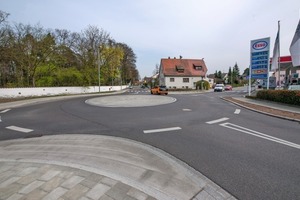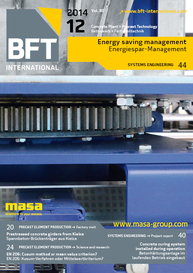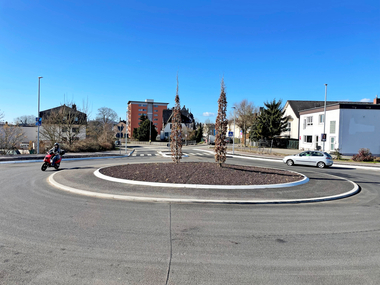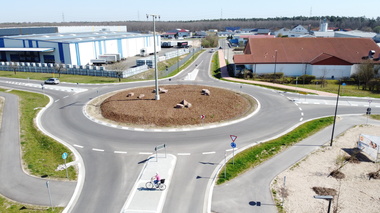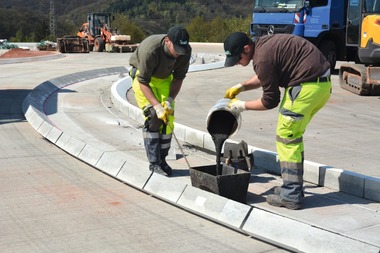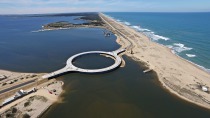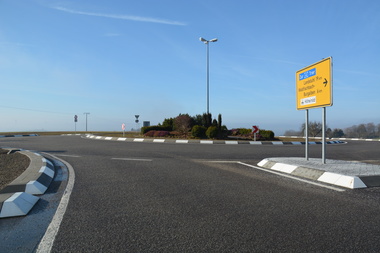Concrete traffic roundabout for small intersections, but heavy traffic
Markt Wendelstein is a Franconian community in Germany located close to Nuremberg, through which the Sperbersloher Street runs with many intersections. “The right-of-way regulations were not entirely clear to the general public,” describes Willibald Hierl, head of the technical building department of Markt Wendelstein, the initial situation. This led not only to traffic jams during rush hour, but caused minor accidents as well. To remedy the situation, the Markt community built three roundabouts, the last of which, completed in 2013, of concrete.
Heavy-duty precast concrete segments
Circulating traffic flows produce greater friction and shear forces during cornering and braking than on straight road sections. Massively cast and fixed-in-place concrete absorbs these forces even in high temperatures without causing any deformation of the road surface; not to mention the time-saving aspect at the construction site. “We had to carry out most of the work during the school summer holidays,“ explained the engineer Josef Reislöhner, managing director of the consulting engineering firm Reislöhner + Partner, commissioned with planning and supervising the construction site. “For that reason we decided on the use of precast concrete parts.”
At the beginning of July, Ratio Bau GmbH, located in close proximity to the construction site, started with the production of the precast parts. “The roundabout consists mainly of a traversable inner circle of nine meter diameter. This we constructed of the round inner portion of three meter diameter and three additional segments,” explained the plant’s managing director Hans Lerner. We then manufactured two additional elements for the transition to the road, since the circle tapers conically from 43 to 25 cm. Furthermore, conduits had to be provided for the subsequently to be installed stainless steel anchors that run crosswise through the two to three each external sections.
Long service life due to low surface wear
The concrete for the roundabout was supplied by the Wendelstein ready-mixed concrete plant of TBG Transportbeton Franken, an affiliate company of Heidelberger Beton GmbH. “For the mix design we used a special hard stone in the form of basalt,“ reported general manager Martin Sczeponik. “These basalt fractions ensure high resistance to polishing, low surface wear and thus a long service life.” The concrete parts were delivered to the construction site on call, installed by mobile crane, tensioned, and the joints sealed. “The inner circle was installed in one day, the transitions in only half a day. Finally, the road surface was cleaned of sludge by means of shotblasting – and finished was the roundabout,” reported Hans Lerner.

